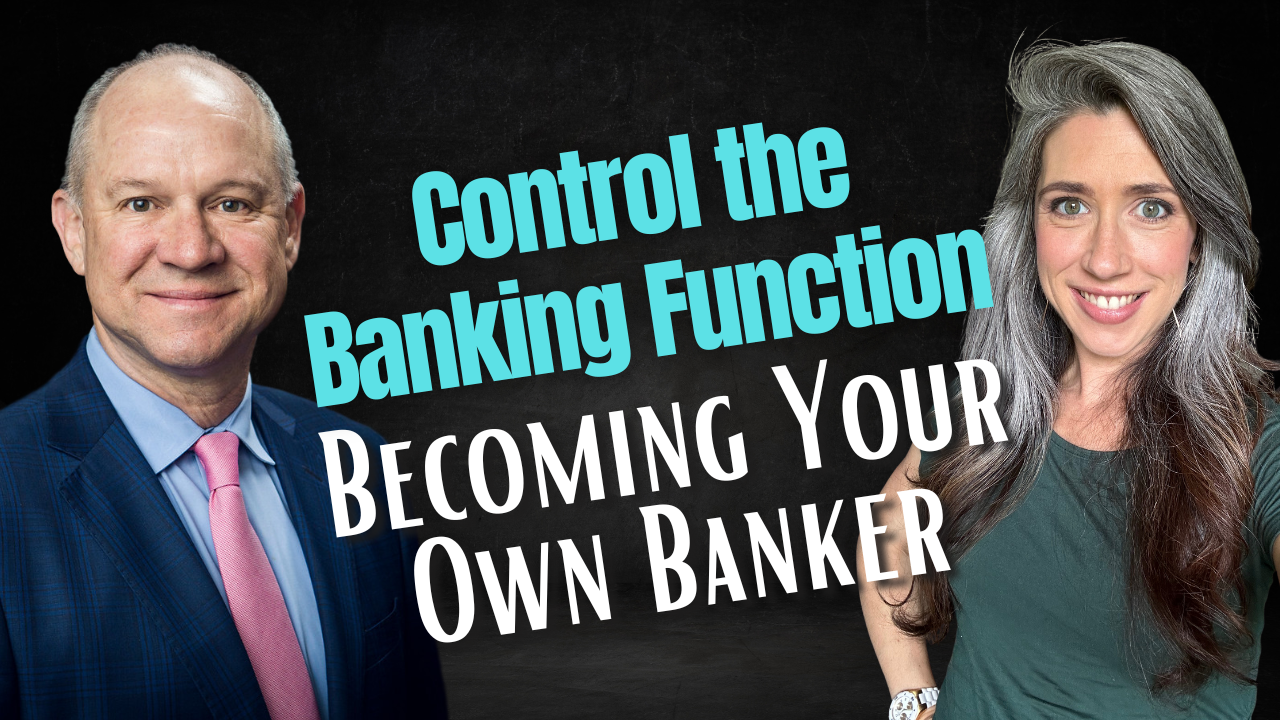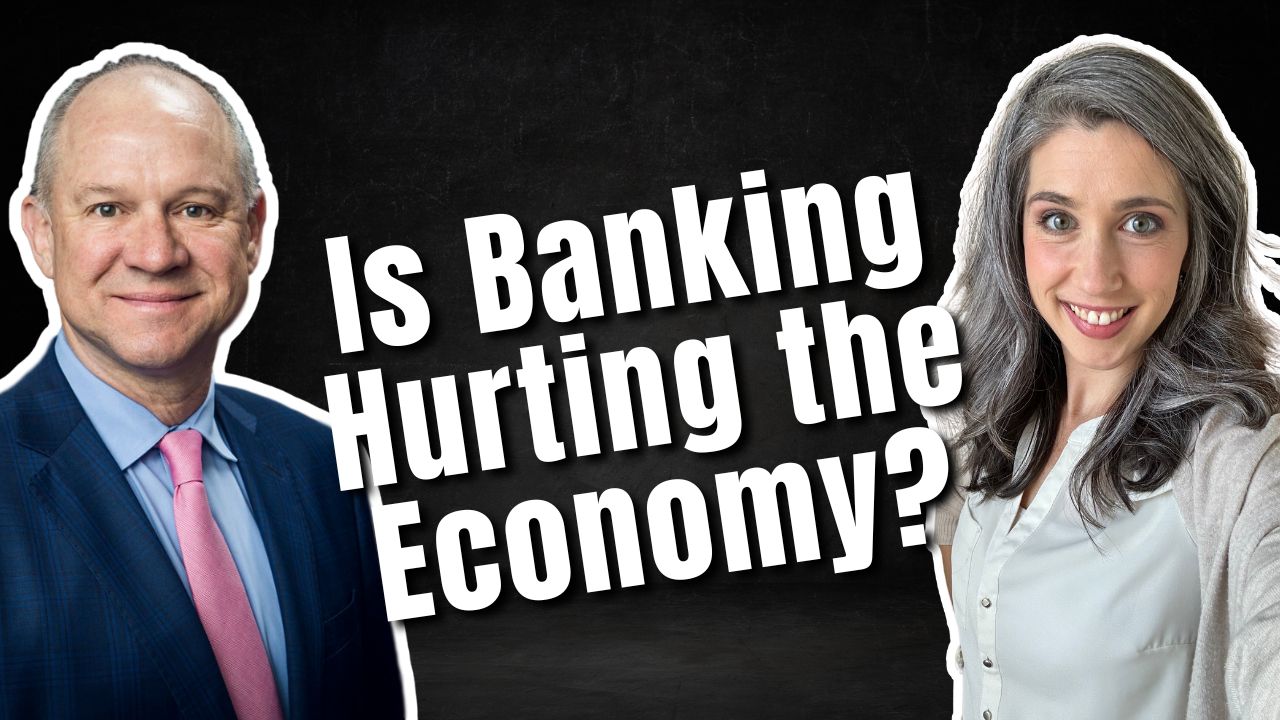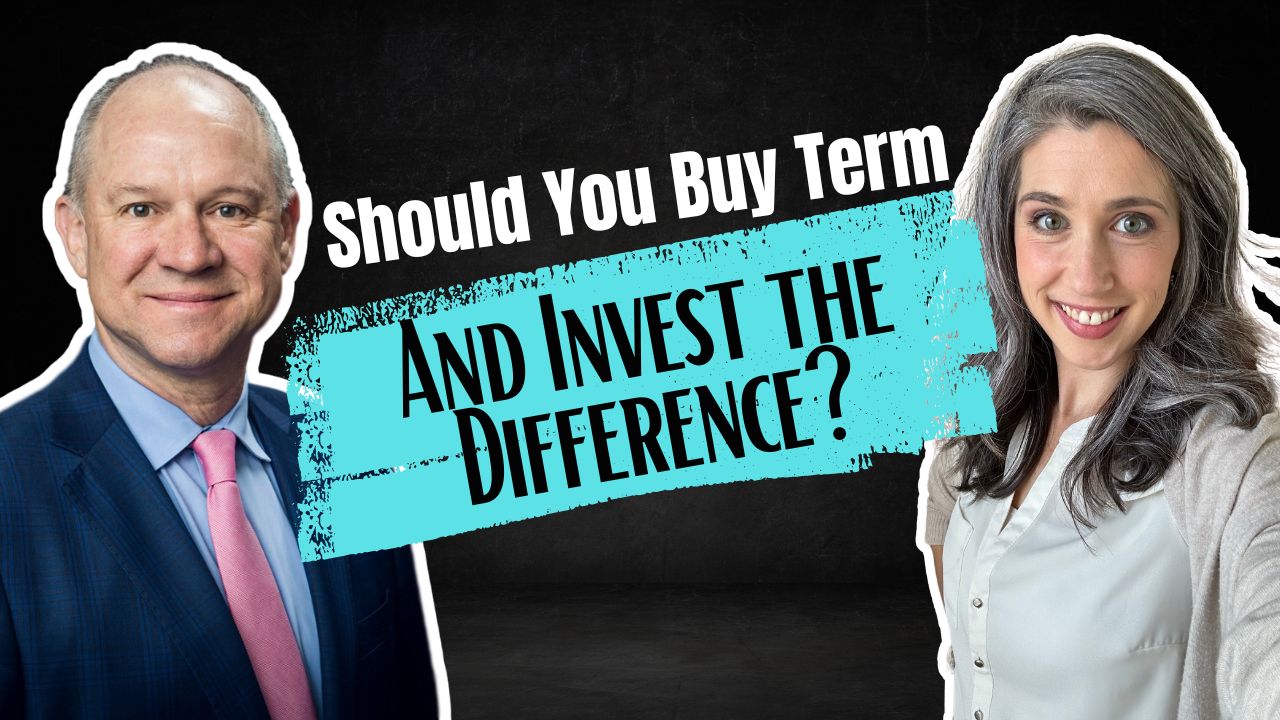
Becoming Your Own Banker, Part 16: Controlling the Banking Function
Prepare to elevate your financial game as we unravel the infinite secrets in Nelson Nash’s Infinite Banking concept. Promise yourself a brighter financial future armed with the knowledge of how you can start controlling the banking function in your life, maximizing your cash value, and creating a lasting legacy.
We’ll reveal how to strategically capitalize your banking system so that you can experience the power of Infinite Banking in your life and legacy. Dividend-paying life insurance makes everything you’re already doing in your financial life better—financing, income, saving, investing, and leaving a legacy. That’s because you gain a banking system that produces compounding interest and dividends that you can use in various ways.
As we navigate through Nash’s infinite banking concept, we shed light on taxable income and financing in banking. We break down how this concept can be used to finance significant purchases, using a logging truck as a case study. We also offer valuable tips for success in business, reminding you that understanding the perspective behind the words is pivotal to applying the Infinite Banking concept in various financial scenarios. We’re excited to share these insights and encourage you to consider booking a session with an advisor to fully leverage this concept. Let’s together create an empowering financial future!
The bottom line is that capitalization drives your ability to reap the benefits. The more you capitalize, the greater your advantages. How you capitalize and the methods you use are a matter that requires looking at your personal situation and playing your cards best, whatever hand you are dealt.
Podcast: Play in new window | Download (Duration: 1:06:30 — 76.1MB)
Subscribe: Apple Podcasts | Spotify | Android | Pandora | RSS | More
Table of Contents
Controlling the Banking Function
When we talk about the Infinite Banking Concept, it’s critical to understand that IBC refers to the banking function, not the asset you use (whole life insurance). So what does it mean to control the banking function? Controlling the banking function is about replacing the bankers in your life and, as the title of Nelson Nash’s book suggests, becoming your own. You’re NOT becoming the bank, however.
What it means to be the banker is to be in control of how you save, store, and invest your capital. You’re in control of moving money and approving major financing, rather than relying on someone else to do it for you. And in order to control the banking function in your life, you have to have capital. That’s where whole life insurance comes in.
Whole life insurance is an ideal place to store and grow your capital for many reasons, namely that you get to partake in safety, liquidity, and growth. Many assets only offer two of the three components, maximum. Controlling the banking function doesn’t stop there, though. You’ve got to fund the asset, which Nelson also calls the capitalization phase. This is central to the Infinite Banking strategy.
Capitalization is Key
[10:30] “The end conclusion of this chapter is that the most cash value and the most death benefit at the end of the policy–the way you get that–is to capitalize the most. And what you can do to capitalize the most is to pay all of your base premium and all of your paid-up additions stacked together…all the way out [for] as long as possible in the policy.”
Capitalization is how you build your capital, and you only do that through contributions. This is a big reason that cash value acts like a savings vehicle—because those premiums and PUAs contribute directly to cash value growth. The more you maximize your payments each year, the more capital you’ll build–now and later.
So if you plan to use the living benefits of your whole life insurance, you’ve got to capitalize. You should want to pay as much money as possible because that’s going to create the foundation for your financial future.
Other Ways to Capitalize an IBC Policy
Another capitalization method that Nelson mentions in his book is doing a “short pay” of your policies. This would mean making maximum contributions for a short period of time, say the first 4 years. After that, you can begin using the policy for investments. Nelson’s example in the book is to purchase equipment.
With the profit from the investment, you can not only pay the interest charged by the insurance company, you can actually pay additional interest. But the only way to do this is if you have not fully paid your PUAs. In fact, in Nelson’s example, he even goes as far as stopping premiums altogether by lowering his death benefit a little and then using the dividend to cover the remaining base premium.
However, this can also work if you know you need to make premium payments AND a loan payment at the same time, yet are stretched thin. By focusing on the base premium with your regular income, and then paying additional interest with your investment income, that extra acts as if it’s PUA. Meaning that you can fully capitalize in that way if you need to.
It’s not a magic way of getting more money into a policy, just a different way of reaching maximum capitalization.
How Long Should You Capitalize?
As you can see, there are several strategies for capitalization, which begs the question: How long should you capitalize? In general, you can choose how long you want to pay premiums. You can choose to pay over 99 years, 10 years, or somewhere in between. Yet what’s great about choosing a longer capitalization period is that you can keep contributing to the account growth.
With a 10-pay policy, you’re done after 10 years. And while there can be some advantages to that, depending on your goals, you can’t fund that policy anymore after the ten years are up. It’s a fully funded policy. This means that the only growth the cash value will have is from interest and dividends alone.
On the other hand, when you choose to fund a policy for as long as possible, you get to fund it for as long as possible. And thanks to the flexibility of whole life insurance, you have options if for some reason you can’t make premium payments over the years. The dividend truly helps you to unlock these benefits in a way that gives you countless options over your lifetime.
This is why, in general, it’s good to choose to pay premiums for as long as you possibly can. In the best case scenario, you get a maximally funded policy over your entire lifetime.
Book A Strategy Call
Do you want to coordinate your finances so that everything works together to improve your life today, accelerate time and money freedom, and leave the greatest legacy? We can help! Book an Introductory Call with our team today https://themoneyadvantage.com/calendar/, and find out how Privatized Banking, alternative investments, or cash flow strategies can help you accomplish your goals better and faster. That being said, if you want to find out more about how Privatized Banking gives you the most safety, liquidity, and growth… plus boosts your investment returns, and guarantees a legacy, go to https://privatizedbankingsecrets.com/freeguide to learn more.
Fractional Reserve Banking Creates Inflation: Infinite Banking is the Solution
Inflation causes everything to feel more expensive, so what do you do to protect your money from inflation? Today, we’ll explore the link between inflation and fractional reserve banking, and how Infinite Banking is the sound money solution. A thought-provoking journey through inflation, fractional reserve banking, and the revolutionary concept of infinite banking. This episode…
Read MoreBuy Term and Invest the Difference: Here’s What’s Wrong
Are you trying to decide which type of life insurance to buy? You want to protect your family in case something happens, so how do you do it best? Whole life insurance is often rejected as expensive and a poor “investment,” while mainstream opinion leans in favor of the “buy term and invest the difference”…
Read More


